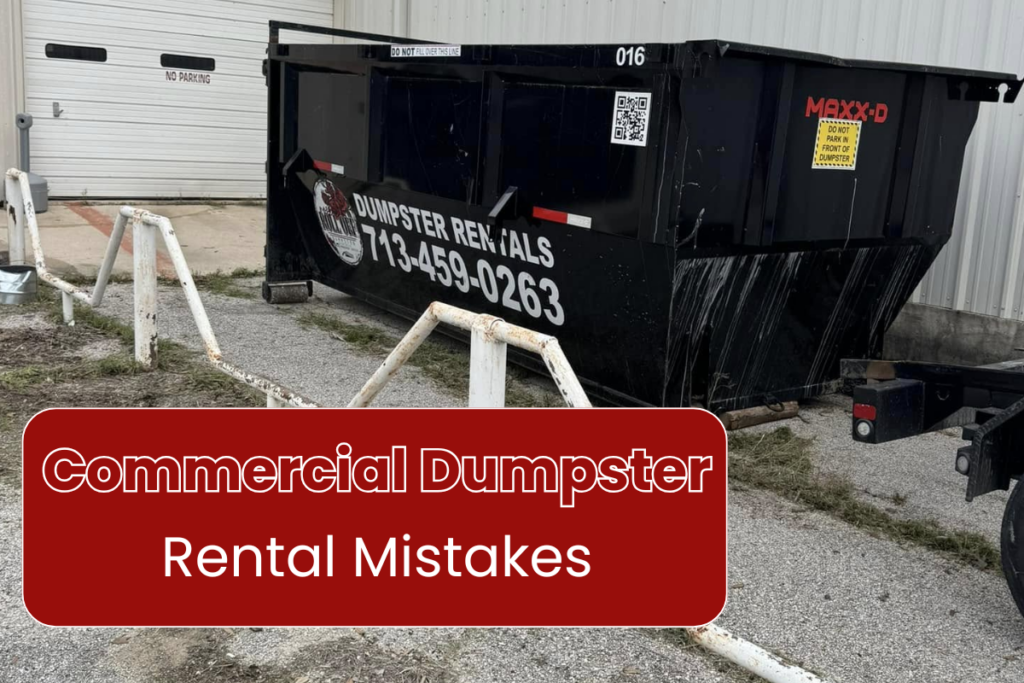5 Common Mistakes to Avoid When Renting a Commercial Dumpster

Renting a commercial dumpster can be a practical solution for managing waste on construction sites, business renovations, or large-scale cleanouts. However, many business owners and project managers make costly mistakes that lead to inefficiencies, unnecessary expenses, or regulatory issues. Understanding these common pitfalls can help ensure a smooth and cost-effective dumpster rental experience. Here are five mistakes to avoid when renting a commercial dumpster.

